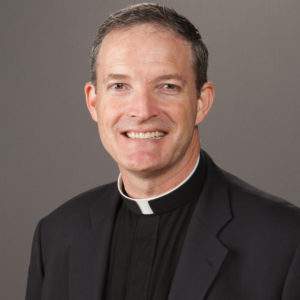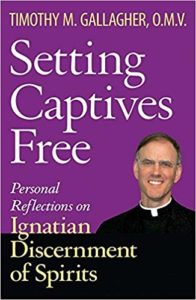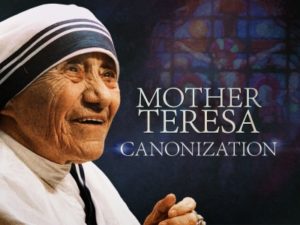Podcast: Play in new window | Download (Duration: 29:22 — 20.2MB) | Embed
Subscribe: Apple Podcasts | Spotify | Amazon Music | Android | Pandora | iHeartRadio | JioSaavn | Podchaser | Gaana | Podcast Index | Email | TuneIn | Deezer | Anghami | RSS | More

St. John Chrysostom, Pt. 2 – The Doctors of the Church: The Charism of Wisdom with Dr. Matthew Bunson
- Born: 347 AD, Antioch, Turkey
- Died: September 14, 407 AD, Comana Pontica
Dr. Matthew Bunson and Kris McGregor explore the ministry of St. John Chrysostom during his time as Archbishop of Constantinople. Known as “Golden Mouth” for his extraordinary preaching, John arrived in the imperial city with a reputation for holiness and reform. He refused pomp in his consecration and redirected wealth toward care for the poor. From the outset, he challenged the excesses of the court, the clergy, and the wealthy elite. His vision for Constantinople was a Christian city modeled on the New Testament, where all—slave, poor, and empress alike—were equal citizens with dignity before God. This radical call to renewal won him admiration from many but stirred resentment among powerful figures, particularly Empress Eudoxia, who saw his words as direct attacks on her lifestyle and influence.
John’s biblical mastery allowed him to present Scripture with clarity, making it both practical and deeply theological. He defended the divinity and humanity of Christ against heresies like Arianism, articulated the reality of Christ’s presence in the Eucharist, and laid out the Church’s early social teaching. His clashes with Eudoxia and rival bishops led to his exile and eventual death, yet his legacy endured. Declared a Doctor of the Church in 1568, Chrysostom stands as a model preacher and pastor who combined fidelity to Scripture with a fearless call to conversion. His life shows the cost of proclaiming truth in a culture of power and luxury, but also the enduring fruit of a ministry grounded in love for the poor and the Eucharist.
Discerning Hearts Reflection Questions
- How does St. John Chrysostom’s commitment to caring for the poor challenge the way I use my own resources?
- In what ways am I tempted by luxury or comfort at the expense of living the Gospel more fully?
- How can I allow Scripture to become a “blueprint” for my daily choices, as Chrysostom encouraged his flock to do?
- What does his courage in confronting corruption teach me about speaking truth in love, even when it is costly?
- How does Chrysostom’s devotion to the Eucharist invite me to deepen my own reverence for Christ’s real presence?
- Am I willing, like him, to endure misunderstanding or opposition for the sake of remaining faithful to Christ?
- How can I contribute to building a “Christian city” in my family, parish, or community today?
From Vatican.va, an excerpt from the teachings of Pope Benedict XVI General Audience 2009
“The Lord, his biographer explains, intervened with the illness at the right moment to enable John to follow his true vocation. In fact, he himself was later to write that were he to choose between the troubles of Church government and the tranquillity of monastic life, he would have preferred pastoral service a thousand times (cf. On the Priesthood, 6, 7): it was precisely to this that Chrysostom felt called.
It was here that he reached the crucial turning point in the story of his vocation: a full-time pastor of souls! Intimacy with the Word of God, cultivated in his years at the hermitage, had developed in him an irresistible urge to preach the Gospel, to give to others what he himself had received in his years of meditation. The missionary ideal thus launched him into pastoral care, his heart on fire.
Between 378 and 379, he returned to the city. He was ordained a deacon in 381 and a priest in 386, and became a famous preacher in his city’s churches. He preached homilies against the Arians, followed by homilies commemorating the Antiochean martyrs and other important liturgical celebrations: this was an important teaching of faith in Christ and also in the light of his Saints.
The year 387 was John’s “heroic year”, that of the so-called “revolt of the statues”. As a sign of protest against levied taxes, the people destroyed the Emperor’s statues. It was in those days of Lent and the fear of the Emperor’s impending reprisal that Chrysostom gave his 22 vibrant Homilies on the Statues, whose aim was to induce repentance and conversion. This was followed by a period of serene pastoral care (387-397).
Chrysostom is among the most prolific of the Fathers: 17 treatises, more than 700 authentic homilies, commentaries on Matthew and on Paul (Letters to the Romans, Corinthians, Ephesians and Hebrews) and 241 letters are extant. He was not a speculative theologian.
Nevertheless, he passed on the Church’s tradition and reliable doctrine in an age of theological controversies, sparked above all by Arianism or, in other words, the denial of Christ’s divinity. He is therefore a trustworthy witness of the dogmatic development achieved by the Church from the fourth to the fifth centuries.
His is a perfectly pastoral theology in which there is constant concern for consistency between thought expressed via words and existential experience. It is this in particular that forms the main theme of the splendid catecheses with which he prepared catechumens to receive Baptism.
On approaching death, he wrote that the value of the human being lies in “exact knowledge of true doctrine and in rectitude of life” (Letter from Exile). Both these things, knowledge of truth and rectitude of life, go hand in hand: knowledge has to be expressed in life. All his discourses aimed to develop in the faithful the use of intelligence, of true reason, in order to understand and to put into practice the moral and spiritual requirements of faith.”
For more visit Vatican.va
For more from Dr. Matthew Bunson, check out his Discerning Hearts page.
Dr. Matthew E. Bunson is a Register senior editor and a senior contributor to EWTN News. For the past 20 years, he has been active in the area of Catholic social communications and education, including writing, editing, and teaching on a variety of topics related to Church history, the papacy, the saints and Catholic culture. He is faculty chair at Catholic Distance University, a senior fellow of the St. Paul Center for Biblical Theology, and the author or co-author of over 50 books including The Encyclopedia of Catholic History, The Pope Encyclopedia, We Have a Pope! Benedict XVI, The Saints Encyclopedia and best-selling biographies of St. Damien of Molokai and St. Kateri Tekakwitha.







